Camping has always been a multi-generational activity, so what is the best age to start?
Well, according to a recent report published by KOA, there was a dramatic increase in camping in 2020 following the outbreak of the COVID-19 pandemic [Reference]. That means more people went camping more often!
As a parent or guardian, you might be asking yourself if your kids are old enough to start camping. Or whether or not it’s okay to take a baby on a camping trip.
While there’s no such thing as “the best age” for camping, you should certainly consider some important factors before taking your children camping or even trying it for yourself!
Article Contents:
When Do Most People Start Camping?
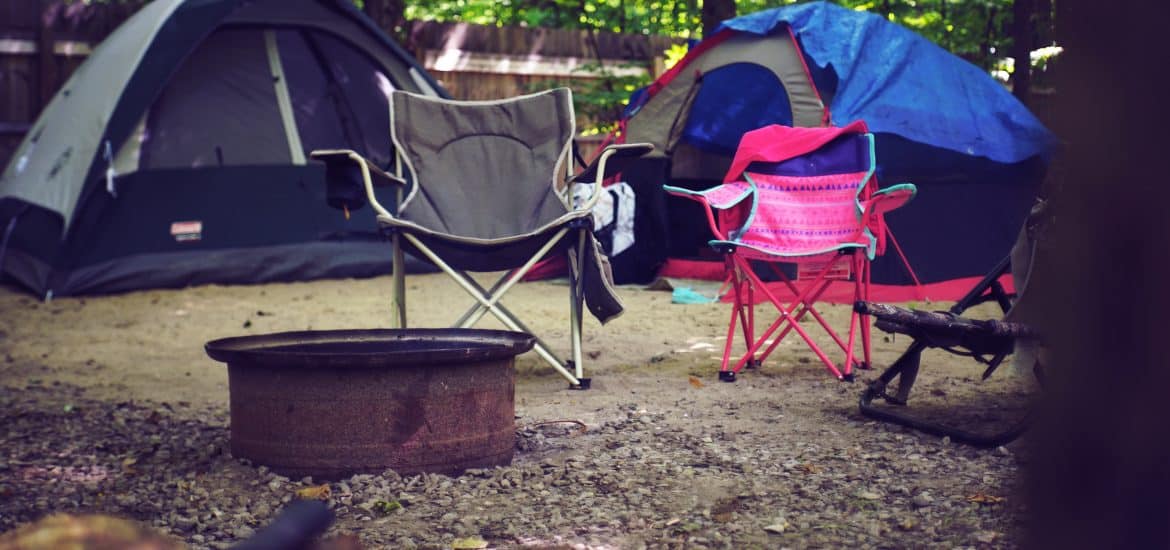
As an apprehensive parent, you might be juggling with the idea of camping with your kids in the near term or waiting until they are a bit older. It’s a valid concern since most parent’s want their kids to enjoy camping when it’s safe and maybe easier to do so.
In actuality, taking young kids camping isn’t abnormal. In fact, some experienced campers even take months-old infants on short camping trips!
As a teenage or adult, or at any age for that matter, camping for the first time is can seem a bit intimidating. However, it honestly just boils down to research, planning, and preparation. With the right gear, know-how, and motivation, anyone can camp!
What is the Average Age of a Young Camper?
Theoretically, kids can start camping at any age as long as there is a sufficient amount adult supervision. In general, the average age when kids start camping is 10 years old [Reference].
At this age, children are able to do basic tasks independently and also understand safety instructions better. Personally, I started camping at the age of 8 years old. And, as a volunteer at an overnight camp, I see kids as young as 6 years old participate in 1 to 2 week-long overnight trips!
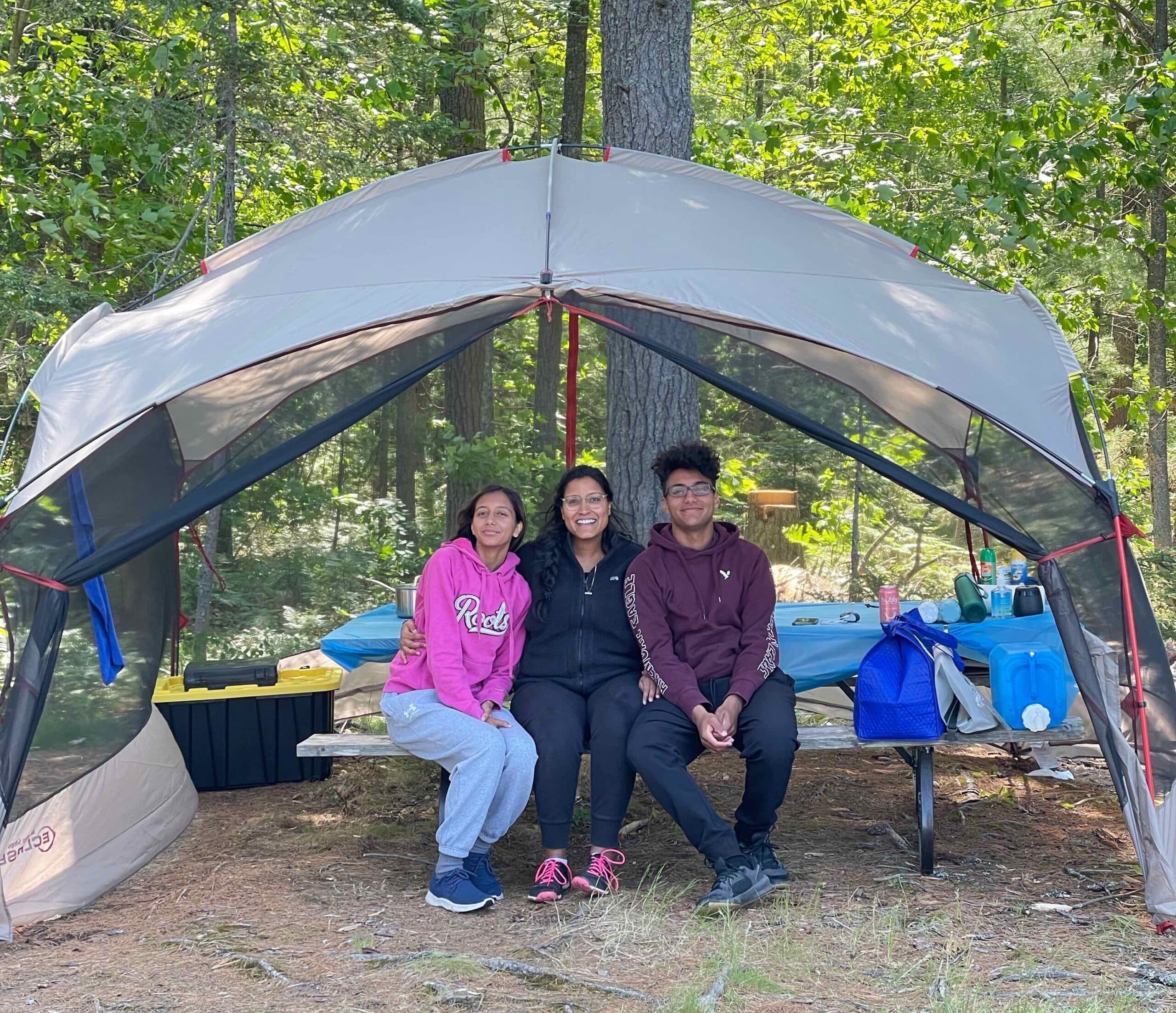
What Age Group or Generation Goes Camping the Most?
According to recent information, the largest demographic of campers belongs to Millennials at 37% which implies that the average age of a camper is 31.5 years old [Reference].
Millennials are increasingly keen on spending more time with family and reaping the benefits of spending time outdoors. The COVID-19 pandemic would have intensified the desire to add more balance to work-from-home life by connecting with nature.
What 5 Factors Affect the Best Age to Start Camping?
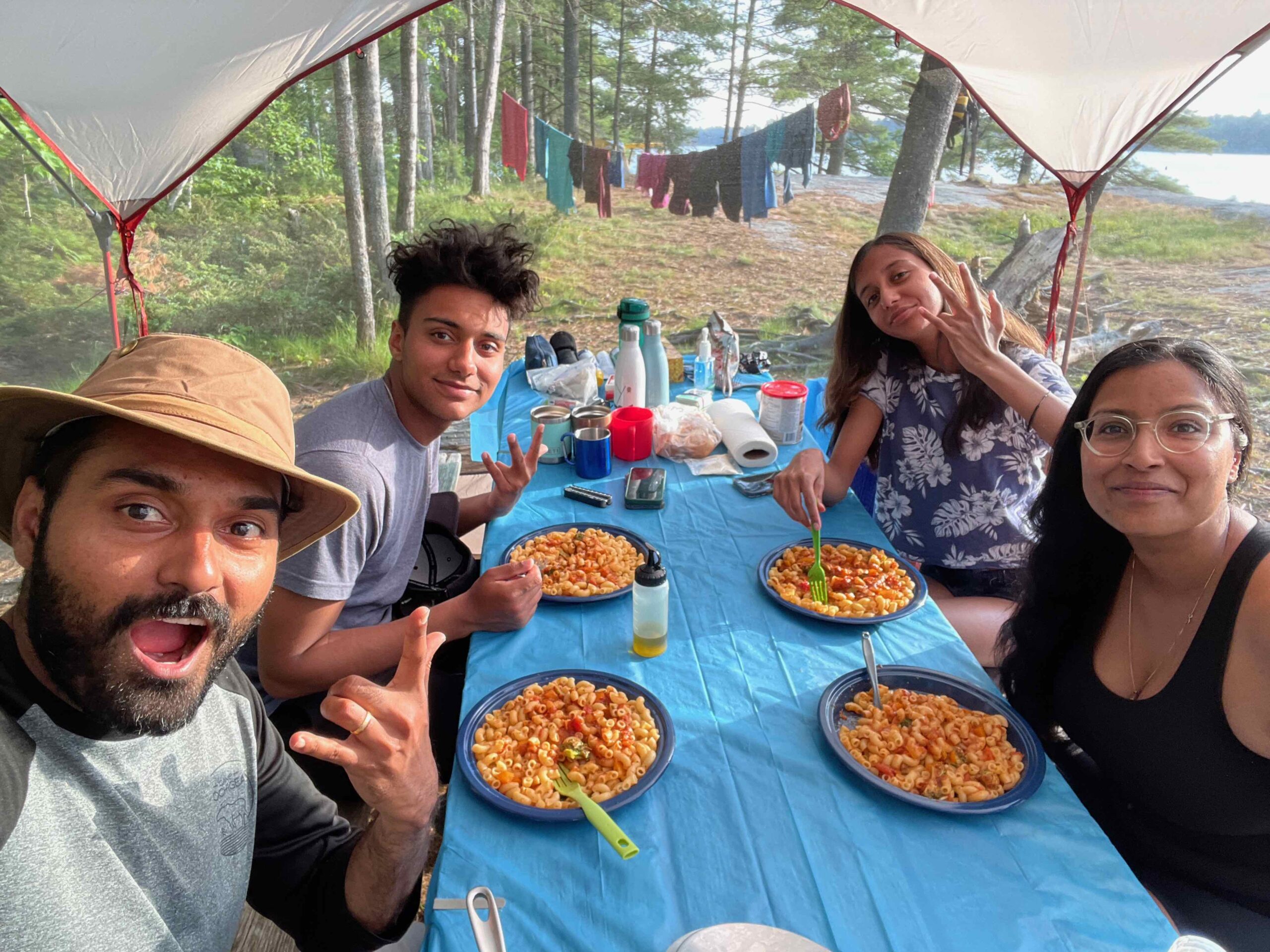
Just like any activity or sport, there are certain factors that can influence when, or the best age, to start camping.
Let’s work through some of these factors one by one and see how they can speed up or delay when you or your kids start camping.
1. Tent vs. Campervan vs. Cabin Camping / Glamping
Tent Camping
If you plan to camp with young children using a tent, it’s suggested to wait until your child is at least 3 years old. That’s because, unless you’re well versed in outdoor living, you might find the experience overwhelming.
Babies and toddlers can easily get irritable sleeping in a tent. It can be due to lack of space, inadequate insulation, or simply the change of their usual bedding.
Pro-tip: Before leaving on your camping trip with your baby, see how he or she responds to sleeping inside of a tent. You can set up your tent inside or outside your home, and even spend a few nights conditioning your baby to sleep inside of this new environment!
Campervan
If it’s a campervan and the weather conditions are favorable, you should have no issues bringing young children, even your baby, on an adventure! A campervan should be more comfortable for everyone.
You have the added benefit to access more facilities. If you run out of supplies, you can always make a stop at a grocery store. Your kids are also more likely to enjoy it as it offers more spontaneity.
Just pile into the campervan and drive into the wild!
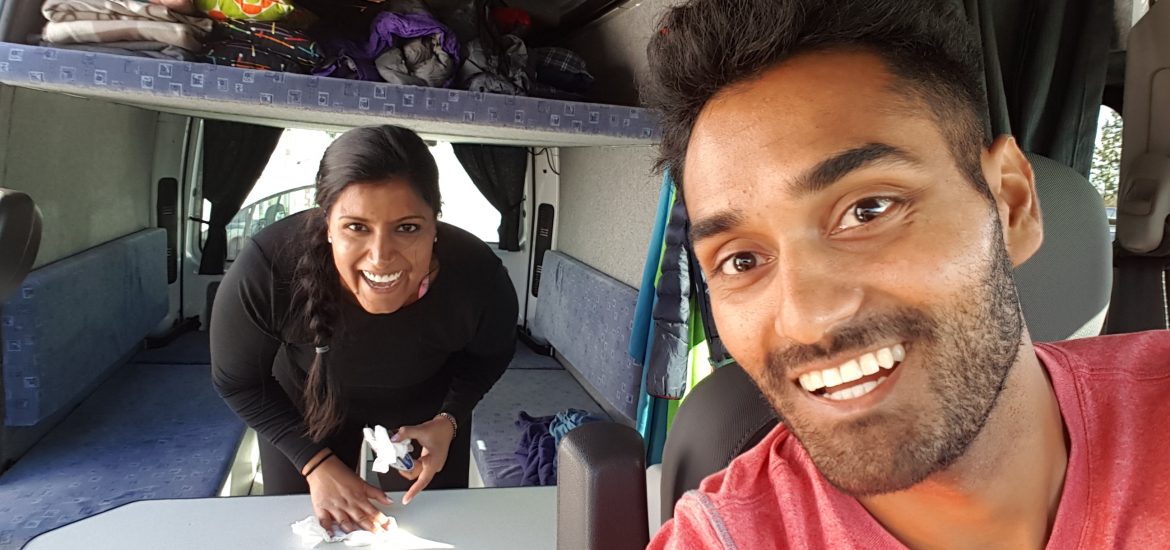
Cabin / Cottaging / Glamping
If your camping adventure includes going to a cabin, cottage, or glamping, there really is no age limit. You should have access to all the basic facilities (make sure to confirm with the owners beforehand though). Young children, and even seniors should feel very comfortable at a cabin or cottage.
Some cabins and cottages can be located in remote areas, so you might need to pack a few extra necessities with you. But, there’s really nothing you’ll be missing!
2. Special Needs and Supervision
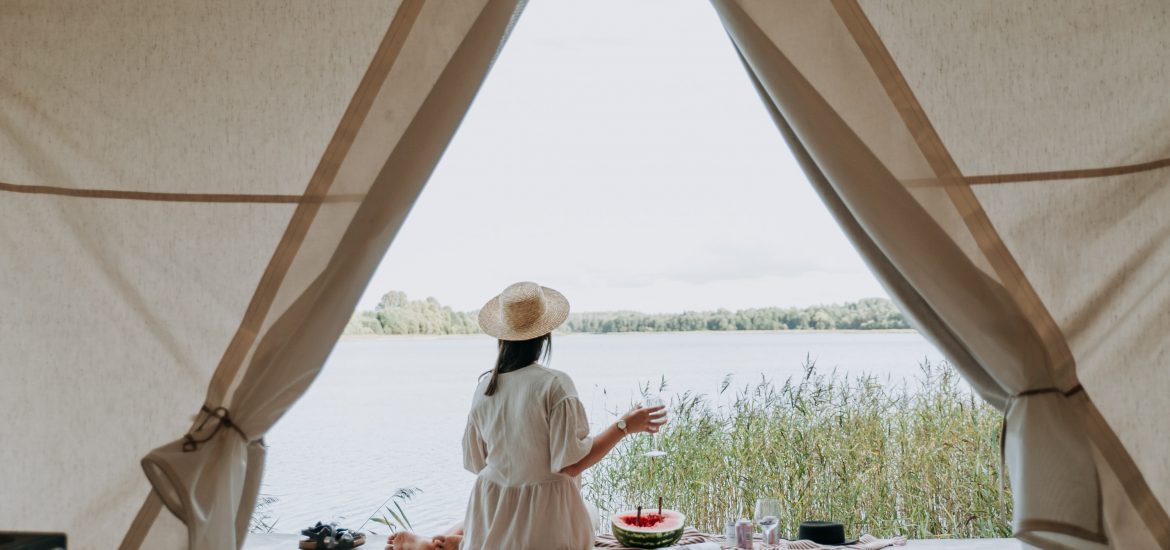
If your child requires special needs or supervision, you have to be extra cautious about when, where and how to camp. The same is true when sending them on a camping trip organized by their school.
Each child in this scenario is unique, physically and mentally, so there’s no best age to start camping. It’ll be up to the parent’s discretion.
Ask yourself the following questions to find out if your child is ready:
- Do they love the idea of kids camping and insist they want to go?
- Are they capable of understanding parental instructions and safety rules?
- Are they generally not too overwhelmed by crowds?
- Do YOU feel confident that you and/or your partner can look after the child throughout the trip without becoming overwhelmed?
Many other factors like the campsite location, type of crowd, safety considerations, and the need for extra help should be considered when making a decision.
3. Location and Proximity to Hazards
The location and the level of risk associated with the camping trip also play a big role in determining when to start camping with kids. If you want to familiarize your child with the idea of camping, choose kid-friendly camping spots that are safe.
But, dense wilderness areas aren’t great kids camping spots, especially if it’s their first trip. That’s because danger and hazards can come in many forms in more remote camping locations.
So, it’s best to avoid remote camping locations that contain:
- High concentrations of dangerous wildlife like mountain lions, snakes, etc.
- Toxic plants since children can easily be lured to touch or contact them.
- Rocky paths, hills, and cliffs as they can sustain injuries easily.
If your child is very active and rambunctious, it’s easy for them to wonder off and for you to lose sight of them.
So, it’s best to pick safe and convenient kid-friendly camping spots until they have a decent grasp of the the wilderness. Always err on the side of caution.
4. Weather Conditions
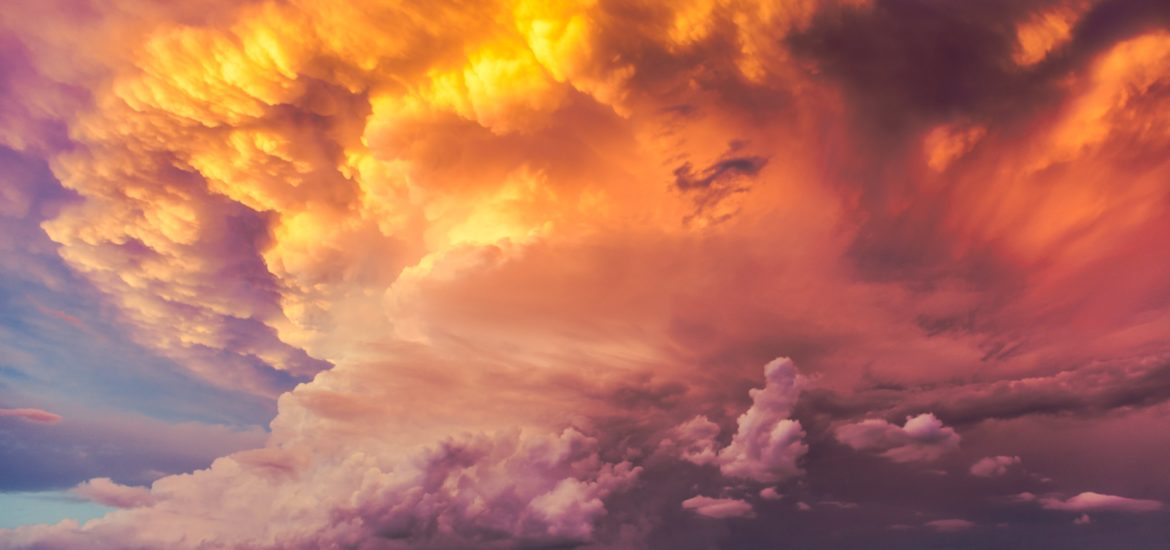
If the weather forecast predicts extreme temperature conditions, high winds, or torrential rain, it’s advises to reschedule your camping trip with very young children.
Generally, babies and young children won’t be able to tolerate such extreme conditions, which might adversely affect their health.
Keep the following things in mind when it comes to weather and camping with kids:
- For babies, avoid all outdoor activities and camping if the outdoor temperature falls below -15 °F (-26 °C). Babies are vulnerable to rapidly developing hypothermia and frostbite [Reference].
- Ambient temperatures above 90 °F (32 oC) is considered too hot for kids. High temperatures can bring out issues like dehydration, cramps, and rashes.
- High winds can whip up dust and debris which could easily injure the eyes of unsuspecting kids.
- Camping at high elevations with small children risks altitude sickness due to the reduction in oxygen.
Make sure you check the weather forecast beforehand and prepare well in advance. You should consider your children’s health condition too.
Even a lingering cough or high temperature can rapidly turn into something more serious while camping!
5. Campsite Amenities
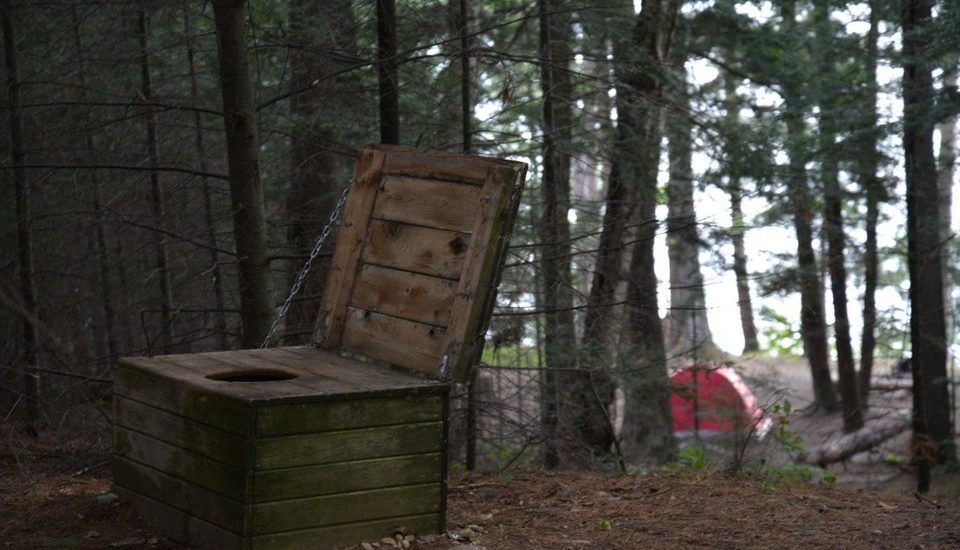
The campsite itself also plays a significant role in determining if it’s ideal for kids camping.
For example, taking younger kids to established campgrounds filled with amenities is great. Some campgrounds include:
- Facilities like running water, electricity, flush toilets, hot showers, fire pits, and more.
- Increased safety measures in place with on-site emergency assistance and wildlife management.
- Special day programs for kids to keep them engaged and occupied throughout their stay.
On the polar opposite end, backcountry campsites have little to no amenities. Taking a toddler or young children backcountry camping is not ideal unless you’re a seasoned pro.
- Accessing remote campsites can be a challenging and may require long overland hiking, canoeing, or off-road driving.
- There is no flush toilet or washing facilities so children wanting to go to the bathroom must be comfortable going number 1 and number 2 outside, and their overall hygiene will take a hit.
Pro-tip: Check out how to pee and poop while camping for all the options available.
- Campsite set up, cooking, cleaning, and managing kids can be more difficult when in the backcountry with more unknowns and nature-induced variables.
This article contains affiliate links, which help support this blog at no cost to you!
